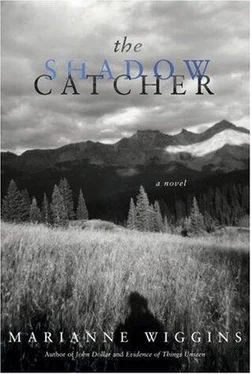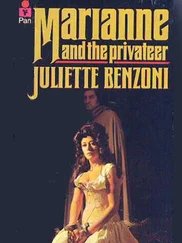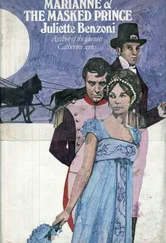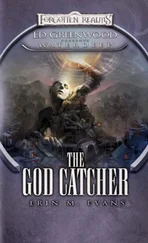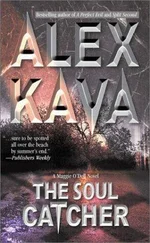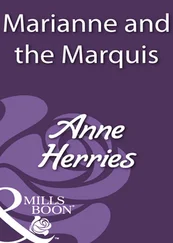Edward! she breathed, reaching for him as a safety. She had never told him how her parents died, only how she and Hercules had been forced to carry on without them. She had never told him of her mother’s sensitivity for sound, only of her father’s artfulness, and now she felt she had to tell him all about Amelia, how the music lived inside her, how she played, how she transformed into another being, an instrument of sound, when she sat down and started touching the piano.
“—Edward, I so want to tell you how my mother…”
“—yes, I know you’re fairly bursting with excitement, aren’t you, Scout? You are so good for me! You’ve changed my life! Those books — you must go on giving me more books to read! You must teach me everything you know—!”
He kissed her fingers through her glove.
“I’ve brought along this gold nugget,” he said, showing it to her. She had seen it — or one like it — on his writing desk, when she had visited his spartan room: it was small and brown, the shape and color of a relic tooth.
“For our wedding bands,” he said.
From the size of it she could see how thin the bands would have to be, but she was touched.
“A fellow gave it to my father, for saving his wife’s life through prayer. The woman had a fever and my father sat with her three nights and prayed. While we waited, this fellow told me how he’d gone out west to California when the gold was struck, one of the first, in ’49. He told me how he’d found a strike and mined it — not a panning site, a placer find. From that moment I was gold struck — so many things to do in one life, Scout! That fellow ran out of strength before the gold ran out and he showed me on a map where it was and he asked me if I would go with him. Would I! I’d have gone in a heartbeat but for father weighing in against it.”
He rolled the nugget in his hand.
“This nugget was all that he had left and when his wife was cured he pressed it into Father’s hand and said, ‘She’s worth it.’ Father didn’t know what it was worth. If I hadn’t taken it from him he would have squandered it.”
“—you took it?”
“I conserved it.”
His look declared his self-acquittal. Some people, it seemed to say, cannot be trusted to appreciate the value of the things they own, cannot be trusted to safeguard their heritage. It was not so different, she supposed, than her own conservation of her father’s paintings from the debt collectors. And she was even further moved to understand that Edward was now willing to convert this talisman to rings to pledge their troth.
It had already slipped her mind that she had started to tell him something dear to her, about herself. When he had interrupted.
They had not known each other long enough for her to see a pattern, yet — everything they did together was still new, a singular event, so when they docked, and disembarked, into the bruit and push of the rough and tumble ferry slip and Edward strode ahead of her, leaving her to struggle through the crowd alone to catch him, she thought the pace he set was from their shared excitement, not his single-mindedness.
The docks, striving for a state of operability after the destruction of the fire, were a labyrinth of stacked raw timber and improvised sawmills, coils of rope as thick as trees and stoves of steaming tar. Mud was everywhere underfoot — mud mixed with ash and charcoal soot — the broad planks serving as pedestrian walkways slick with muck the color and consistency of wet tobacco. Her dress boots, soles worn thin from years of walking St. Paul’s cobbled streets, offered no protection from the viscous slime and she could feel damp starting in her heels and rising to her ankles. She slipped and fell against a barrel-chested man with an iron cudgel hammering an anchor chain, whose breath, when he turned to catch her, reeked of ale and onions. The air, less dense with fog than on the water, filtered light as if through muslin and was thick with unfamiliar smells, acrid, metal and marine, laced with the pungent spice of charring fagots that the Chinamen were burning to fry meat and nests of noodles in hammered bowl-shaped pans the size of carriage wheels.
This was not the city she expected.
Everything about it was rough and go , not civilized so much as being civilized and as she pushed through the clotted knot of people to catch up with Edward she felt comforted that he was there with her and wondered how she ever could have dreamed of managing this frontier alone.
As the city rose — and it rose in steppes, hill after hill — it became more tamed.
She followed him onto an esplanade, then up a paved incline into a street that began to prompt her memory of what a proper city had to offer. There were trolley tracks and sidewalks — a bakery, a tea shop, a stationer. The late summer sky was still a dismal gray but the rawness of the dockside blocks gave way to the patina of a better neighborhood as Edward finally came to a full stop and peered around a corner. This is it, he said.
“—it’s an alley ,” Clara couldn’t help but noting.
“It’s that building, there,” he said and pointed to a shop at the head of the dim cul-de-sac with a sign that read, PHOTOGRAPHIC PORTRAITS.
The alley, though short, was wide enough for two carriages and must have originally been built as a mews to stable carts and horses, because midway down the short block there were distinctive stable doors and the remnants of tackle designed for lifting bales of hay. The little street was paved with cobblestones and was not the bleak dead-end that she first thought — on one corner there was a ladies’ milliner next to a gentleman’s cane-and-umbrella shop. On the other corner, a goldsmith and jeweler.
Carriage trade , she rightly assessed. “On second thought,” she said to Edward, “this could be a good location.”
They proceeded to the entrance, Clara conscious of the rising mudline on her skirt, as if it were a shore, and were surprised to find a neatly printed notice — CLOSED — hanging on the inside of the door. Edward rang the bell and a faint instruction inside informed them that the door was open, and they entered. “Is that you, Mr. Curtis?” the faint voice inquired.
A man emerged toward them — thin as a rail, lost in a brown suit of clothes several sizes too large, his head balancing on his emaciated neck, glowing yellow like a golden orb inside a gaslight globe.
“I am Rasmus Rothi,” he announced and extended a frail jaundiced hand but Clara took an immediate step backward, pressing Edward back as well, while covering her mouth and nose with her linen handkerchief.
“Do not worry, I am not contagious,” the jaundiced man informed them. “It’s my liver, as you see, but it’s specific to my person. And the reason I can no longer entertain the public trade myself.”
Edward took the gentleman’s hand and introduced himself, while Clara still held back.
“Would you like to see my photographs, Mr. Rothi?” Edward asked, proffering his monogrammed portfolio.
“I would rather see your money,” Mr. Rothi said.
“In that case I will have to see the darkroom.”
“In the back. Studio is up these stairs,” he pointed, “where there’s light. Skylight on the upper floor,” he started to explain but Edward had already disappeared behind the counter through a door toward where the photographs were printed.
“I’m sorry you are ill, Mr. Rothi,” Clara said, still keeping her distance, but before she had even breathed another breath Edward had returned, racing up the stairs. She could hear his footsteps on the floor above and then, within an instant, he was back. How much ? he asked.
Clara took a small step toward him.
Читать дальше
